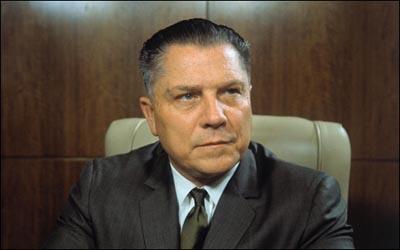On this day on 31st July
On this day in 1831 early feminist writer Helen Taylor was born.
https://spartacus-educational.com/WtaylorH.htm
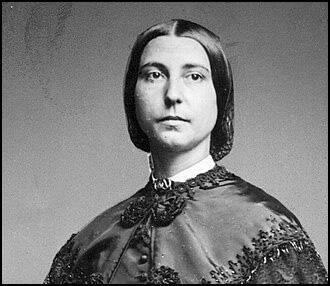
On this day in 1908 WSPU members Elsie Howey, Vera Wentworth and Mary Phillips were arrested at Exeter
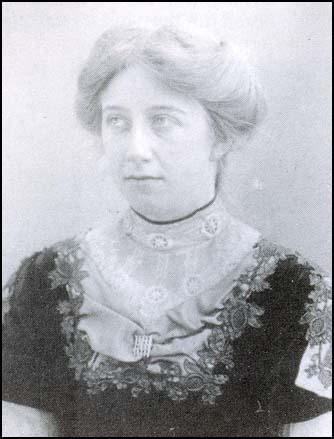
On this day in 1925 Lilian Lenton makes speech on women's suffrage. (116)
https://spartacus-educational.com/WlentonL.htm
https://spartacus-educational.com/spartacus-blogURL149.htm
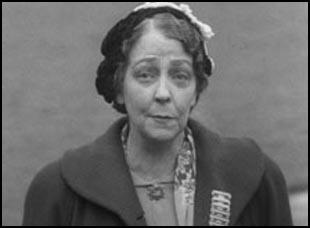
On this day in 1941 Herbert Morrison refuses to publish Right Club's Red Book (17)
https://spartacus-educational.com/2WWrightclub.htm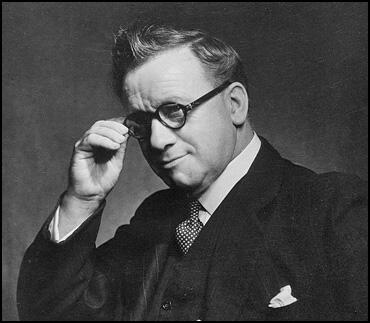
On this day in 1909 Emily Wilding Davison was arrested when she disrupted a speech being made by David Lloyd George at Limehouse in London. "We went outside Lloyd George's meeting at Limehouse. I was busy haranguing the crowd when the police came up and arrested me. We were charged next day at Thames Police Court. I and Mrs. Leigh got the longest sentences, i.e., two months, the rest mostly got two weeks. The governor told us that if we went quietly to our cells we could keep our clothes. Then they took us off one by one after a struggle. When I was shut in the cell I at once smashed seventeen panes of glass. Then they rushed me into another cell. They forcibly undressed me and left me sitting in a prison chemise. Then I was dressed in prison clothes and taken into one of the worst cells, very dark, with double doors."
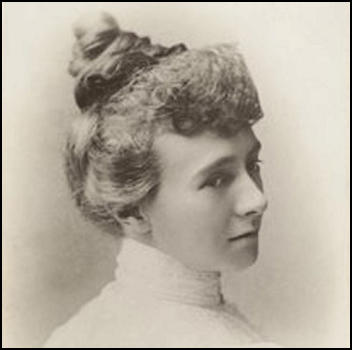
On this day in 1962 Nora Smyth died and is buried in St. Bartholomew's Churchyard, Barrow, Cheshire.
In 2018 Four Corners Gallery in Roman Road, mounted the first ever exhibition of Ethel Smyth's photographs. As Jane McChyrstal pointed out the photographs "cast a sympathetic eye on the women and children of the East End, in contrast to those reporters who came here in search of scenes of poverty and degradation. We can only hope it was a first step on the road to the widespread recognition she deserves."
Norah Smyth was born on 22 nd March 1874. Her father inherited a fortune from a wealthy Liverpool grain dealer. She was the niece of Ethel Smyth. Her father controlled many aspects of her life, refusing her permission to attend university or marry her cousin, as she had hoped.
Smyth's father died in 1912 leaving her a considerable amount of money. For some time she had been interested in the struggle for women's suffrage and joined the Women's Social and Political Union (WSPU), working as an unpaid chauffeur for Emmeline Pankhurst.
Norah was also in the theatre and joined Edith Craig in her creation of the Pioneer Players, her feminist theatre company. Craig became internationally known for promoting women's work in the theatre. Ellen Terry was president of the Pioneer Players and Christabel Marshall contributed as dramatist, translator, actor and a member of the advisory and casting committees. One of the first productions of the group was In the Workhouse, a play written by Margaret Nevinson, one of the leaders of the Women's Freedom League (WFL). The play, based on a true story, told of how a man who used the law to keep his wife in the workhouse against her will. As a result of the play, the law was changed in 1912.
Norah became close friends with Sylvia Pankhurst. According to Patricia W. Romero: "Norah Smyth, a tall, dark, thin, handsome woman, dressed in the liberated fashion of the period, wearing ties and dressing as much like a man as possible. This affection in dress reflected the desire for emancipation and was common among the more liberated, especially those, like Nora, who could afford the new style. On the other hand, both Norah and Sylvia came to accept that were for the time very advanced views on matters pertaining to sexual liberation. We know nothing about the complexities of their personal relationship. Norah never married. Sylvia herself was deeply in love with Keir Hardie in these years."
In July 1912, Emmeline Pankhurst gave permission for Christabel Pankhurst, to launch a secret arson campaign. She knew that she was likely to be arrested and so she decided to move to Paris. Attempts were made by suffragettes to burn down the houses of two members of the government who opposed women having the vote.
On 13 July 1912 Helen Craggs and another woman were found by P.C. Godden at one o'clock in the morning outside the country home of the colonial secretary Lewis Harcourt. He went towards them and asked them what they were doing. Craggs, said they were looking round the house. The policeman said, "This is not a very nice time for looking round a house. How did you come here? Where do you come from?" Craggs said that they had been camping in the neighbourhood. The police-constable said he had not seen any encampment. She then said they had arrived by the river. Godden seized Miss Craggs and arrested her, and she was taken into custody.
Helen Craggs appeared at Bullingdon Petty Sessions the next day. According to Votes for Women, "Miss Craggs, who carried a bunch of flowers in the colours, was evidently the centre of much sympathy from the public in the Court." (8) Helen pleaded guilty to the charge of "being in the garden…. For an unlawful purpose, to commit a felony, to unlawfully and maliciously set fire to a house and building belonging to Mr Harcourt". The judge argued that because of the seriousness of the crime - eight people were asleep in the house - bail was refused.
The police suspected that the other woman was Ethel Smyth. She was arrested the next day but was released as "she was able without difficulty to satisfy the Bench completely as to her movements on the night in question." Over fifty years later Norah Smyth confided the truth to her nephew, former diplomat Kenneth Isolani Smyth, that she was the woman with Helen Craggs in the attempt to set fire to Harcourt's house. "He expressed surprise, knowing her love of old paintings and antiques, but Smyth explained that she knew the east wing of the house was uninhabited. It was the only violent action that she undertook as a suffragette."
In January 1913, Emmeline Pankhurst made a speech where she stated that it was now clear that Herbert Asquith had no intention to introduce legislation that would give women the vote. She now declared war on the government and took full responsibility for all acts of militancy. "Over the next eighteen months, the WSPU was increasingly driven underground as it engaged in destruction of property, including setting fire to pillar boxes, raising false fire alarms, arson and bombing, attacking art treasures, large-scale window smashing campaigns, the cutting of telegraph and telephone wires, and damaging golf courses".
The WSPU used a secret group called Young Hot Bloods to carry out these acts. No married women were eligible for membership. The existence of the group remained a closely guarded secret until May 1913, when it was uncovered as a result of a conspiracy trial of eight members of the suffragette leadership, including Flora Drummond, Annie Kenney and Rachel Barrett. It has speculated that this group included Nora Smyth, Helen Craggs, Olive Hockin, Kitty Marion, Lilian Lenton, Miriam Pratt, Clara Giveen, Hilda Burkitt, Olive Wharry and Florence Tunks.
On 19th February, 1913, an attempt was made to blow up a house which was being built for David Lloyd George, the Chancellor of the Exchequer, near Walton Heath Golf Links. "One device had exploded, causing about £500 worth of damage, while another had failed to ignite." Sir George Riddell who had commissioned the house, wrote in his diary that Lloyd George: "Said the facts had not been brought out and that no proper point had been made of the fact that the bombs had been concealed in cupboards, which must have resulted in the death of 12 men had not the bomb which first exploded blown out the candle attached to the second bomb, which had been discovered, hidden away as it was. He was very indignant." (Lloyd George wrote to Riddell and apologised for being "such a troublesome and expensive tenant" and that the WSPU should be made to pay for the damage.
That evening in a speech at Cory Hall, Cardiff, Emmeline Pankhurst declared "we have blown up the Chancellor of Exchequer's house' and stated that "for all that has been done in the past I accept responsibility. I have advised, I have incited, I have conspired". Pankhurst concluded that extreme methods were needed because "No measure worth having has been won in any other way."
Emmeline Pankhurst was arrested and charged with "incitement to commit arson". On 3rd April she was sentenced to three years' penal servitude and immediately went on hunger strike. No attempt was ever made to feed her forcibly and the Prisoners' (Temporary Discharge for Ill Health) Bill (Cat & Mouse Act), which allowed hunger-striking prisoners to be released to recover their health before being returned to prison, was rushed through to ensure that she did not die in prison.
Police records show that the police suspected Norah Smyth and Olive Hockin of being the people who had carried out the attempt to blow up Lloyd George's house. As Elizabeth Crawford has pointed out: "It is clear from the New Scotland Yard reports of the investigation that Olive Hockin's address had been under surveillance. Her absence from home, the manner of her departure and the time of her return are all noted in the police report."
However, Norah Smyth never admitted to being involved in this attack. In fact, she was now involved in another project with her close friend, Sylvia Pankhurst. With the help of Keir Hardie, Julia Scurr, Mary Phillips, Millie Lansbury, Eveline Haverfield, Maud Joachim, Lilian Dove-Wilcox, Jessie Stephen, Nellie Cressall and George Lansbury and Zeli Emerson, they established the East London Federation of Suffragettes (ELF). An organisation that combined socialism with a demand for women's suffrage it worked closely with the Independent Labour Party.
As June Hannam has pointed out: "The ELF was successful in gaining support from working women and also from dock workers. The ELF organized suffrage demonstrations and its members carried out acts of militancy. Between February 1913 and August 1914 Sylvia was arrested eight times. After the passing of the Prisoners' Temporary Discharge for Ill Health Act of 1913 (known as the Cat and Mouse Act) she was frequently released for short periods to recuperate from hunger striking and was carried on a stretcher by supporters in the East End so that she could attend meetings and processions. When the police came to re-arrest her this usually led to fights with members of the community which encouraged Sylvia to organize a people's army to defend suffragettes and dock workers. She also drew on East End traditions by calling for rent strikes to support the demand for the vote."
Norah Smyth supplied most of the money for this venture. Appointed treasurer of the EFL she helped finance their weekly newspaper, The Women's Dreadnought that first appeared in March 1914. Although they printed 20,000 copies, by the third issue total sales were only listed as just over 100 copies. During processions and demonstrations, the newspaper was freely distributed as propaganda for the EFF and the wider movement for women's suffrage.
Sylvia Pankhurst, who had brought an end to her romantic relationship with Keir Hardie, became extremely close to Norah during this period: "Although Norah was also from a wealthy background, she dedicated many years of her life, and almost all of her inheritance, to the suffragette cause, and lived in Bow with Sylvia for many years. Norah played a key role in all the Federation's activities (she was financial secretary, helped to drill the People's Army and even wallpapered and painted the Woman's Hall) but seemed to prefer a place out of the limelight." (24) It has been suggested Norah became a substitute sister for Sylvia.
Emmeline Pankhurst and Christabel Pankhurst objected to the formation of the East London Federation of Suffragettes and by the end of 1913 Sylvia was on the verge of being expelled from the WSPU. Christabel, who was living in exile, should meet with her in Paris. "So insistent were the messages… I agreed to go… I was smuggled into a car and driven to Harwich. I insisted that Norah Smyth, who had become financial secretary of the Federation, should go with me to represent our members… Like me, she desired to avoid a breach. Dogged in her fidelities, and by temperament unable to express herself under emotion, she was silent… She (Christabel) urged, a working women's movement was of no value; working women were the weakest portion of the sex: how could it be otherwise? Their lives were too hard, their education too meagre to equip them for the contest." Christabel added: "You have your own ideas. We do not want that; we want all our women to take their instructions and walk in step like an army!".
Christabel also complained about ELF's close links with the Labour Party and the trade union movement. She especially objected to her attending meetings addressed by George Lansbury and James Larkin and her friendship with Keir Hardie and Henry Harben. In view of all this, Christabel concluded, Sylvia's East London suffragettes had to become an entirely separate organization, having proven their inability to operate in compliance with WSPU policy.
Norah continued to provide the money needed to keep the ELF functioning. However, as the authors of the East London Suffragettes pointed out: "One of Nora's greatest contributions was as an observer. She had a talent for photography, and it is thanks to her that we have such a fantastic visual record of the East London suffragettes' activities, and so many images of the deep poverty which surrounded them."
The British government declared war on Germany on 4th August 1914. Two days later, Millicent Garrett Fawcett, the leader of the National Union of Women's Suffrage Societies declared that the organization was suspending all political activity until the conflict was over. Fawcett supported the war effort, but she refused to become involved in persuading young men to join the armed forces. The Women's Social and Political Union (WSPU) took a different view to the war. It was a spent force with very few active members. According to Martin Pugh, the WSPU were aware "that their campaign had been no more successful in winning the vote than that of the non-militants whom they so freely derided".
The WSPU carried out secret negotiations with the government and on the 10th August the government announced it was releasing all suffragettes from prison. In return, the WSPU agreed to end their militant activities and help the war effort. Christabel Pankhurst, arrived back in England after living in exile in Paris. She told the press: "I feel that my duty lies in England now, and I have come back. The British citizenship for which we suffragettes have been fighting is now in jeopardy."
After receiving a £2,000 grant from the government, the WSPU organised a demonstration in London. Members carried banners with slogans such as "We Demand the Right to Serve", "For Men Must Fight and Women Must Work" and "Let None Be Kaiser's Cat's Paws". At the meeting, attended by 30,000 people, Emmeline Pankhurst called on trade unions to let women work in those industries traditionally dominated by men. She told the audience: "What would be the good of a vote without a country to vote in!".
Anti-war activists such as Ramsay MacDonald were attacked as being "more German than the Germans". Another article on the Union of Democratic Control carried the headline: "Norman Angell: Is He Working for Germany?" Mary Macarthur and Margaret Bondfield were described as "Bolshevik women trade union leaders" and Arthur Henderson, who was in favour of a negotiated peace with Germany, was accused of being in the pay of the Central Powers. Her daughter, Sylvia Pankhurst, who was now a member of the Labour Party, accused her mother of abandoning the pacifist views of Richard Pankhurst.
Norah Smyth shared Sylvia's pacifist beliefs and joined her on platforms in the East End, condemning the war and calling for an early peace. Norah wrote in The Women's Dreadnought that "peace would be the overriding issue in the year to come". Former WSPU members such as Esther Roper and Eva Gore-Booth joined them on ELFS demonstrations against the war.
In 1914 Norah and Henry Harben agreed to finance the establishment of the Women's Hall at 400 Old Ford Road in Bow. It was large enough to hold meetings of 350 people. It became the headquarters of the East London Federation of Suffragettes (ELFS). It became a social centre run largely by and for local working-class women. It housed a ‘Cost Price Restaurant' where people could get a hot meal at a very low price and free milk for their children.
In October 1914 Norah agreed to finance the establishment of a toy factory at the rear of the Women's Hall. The first toys were wooden and flat, easily made and quickly marketable. The socialist artist Walter Crane provided free designs. Since the Germans had cornered most of the toy market before the war, especially the production of dolls, it seemed to be a good idea. Eventually the factory produced stuffed dolls that they sold to Selfridge's in the West End. When the factory started making profits, Norah turned it into a cooperative and hired Regina Hercbegova as manager.
The factory was supposed to be run collectively, guided by a definite constitution and a workers' committee. Unbeknown to Norah Smyth, Hercbegova set up her own business management system. "Regina swiftly grasped the most effective capitalist methods – cost cutting, increasing her own wages and decreasing those of the staff – while running roughshod over the co-operative, socialist ethos on which the factory was supposed to run."
Regina Hercbegova ran the factory very badly and it was soon heavily in debt. By the end of the war had sold jewels, cashed bonds and sold antique furniture to keep the venture going. In all, Norah lent the factory £750. Norah also financed other ventures. Indeed, between February 1915 and July 1916, Norah lent the ELF a total of £1839 10s 4d.
Despite the problems with the factory, the Women's Hall was a great success: "With a large hall of their own, the suffragettes were able to hold public meetings without fear of interference from the council or the police. Other sympathetic groups could hold their meetings there too, bringing in a new audience for the Federation's messages and building solidarity with other campaigns in the East End at the time. Without having to pay hire fees, the Federation could run a much wider range of activities, including lessons and workshops, fundraising concerts, lending libraries, affordable canteens and nurseries."
Norah and Sylvia formed a branch of the Women's International League for Peace and Freedom in the East End. In a continuing attempt to maintain a balance between suffrage and peace agitation the East London Federation of Suffragettes changed its name in March 1916 to the Workers Suffrage Federation (WSF), symbolically acknowledging its long-held goal of universal suffrage. (40)
Norah and Sylvia, although critical of those who supported Britain's entry into the First World War, they admired those who attempted to reduce the suffering in the conflict. This included Henry Harben who had financed a hospital treating wounded soldiers in France that was being run by another former WSPU member, Dr. Flora Murray. They showed their approval by visiting the hospital in Paris. (41)
The women's hostility to the war resulted in people resigning from the WSF. As Sylvia Pankhurst admitted later: "I felt sorrow in having to tell parents whose sons were at the front that war was wrong and its ideals false… It required an effort to bring myself to do it… I lost old friends and subscribers to our movement."
Norah Smyth, like Sylvia Pankhurst, was a supporter of the Russian Revolution in 1917. Sylvia commented that it was "a great hope in the midst of disaster". The Workers' Suffrage Federation was one of the first organization in Britain to make contact with the revolutionaries in Russia. In an article published in the Workers Dreadnought, she wrote about how the suffrage movement could learn from the events in Russia.
The Workers Dreadnought starting publishing articles by Marxists such as Claude McKay and Max Eastman. It also included translations of Rosa Luxemburg, Karl Liebknecht and Leon Trotsky. According to Patricia Romero, Norah Smyth became a Soviet agent carrying messages from Moscow to Germany, Italy, France and England.
On 31st July, 1920, a group of revolutionary socialists attended a meeting at the Cannon Street Hotel in London. The men and women were members of various political groups including the British Socialist Party (BSP), the Socialist Labour Party (SLP), Prohibition and Reform Party (PRP) and the Workers' Socialist Federation (WSF). It was agreed to form the Communist Party of Great Britain (CPGB). Early members included Tom Bell, Willie Paul, Arthur McManus, Harry Pollitt, Rajani Palme Dutt, Helen Crawfurd, A. J. Cook, Albert Inkpin, J. T. Murphy, Arthur Horner, John R. Campbell, Bob Stewart and Robin Page Arnot. McManus was elected as the party's first chairman and Bell and Pollitt became the party's first full-time workers. It later emerged that Lenin had provided at least £55,000 (over £1 million in today's money) to help fund the CPGB.
It was agreed that the Workers Dreadnought would become its official newspaper. Sylvia argued that "Communism and the Soviets will liberate mothers from their present economic enslavement and drudging. They will elect their own representatives to the Soviets." However, Lenin already saw Sylvia as an enemy because she was a follower of Rosa Luxemburg. In 1920 he published a pamphlet entitled Left-Wing Communism: An Infantile Disorder. He accused her and other left-wing libertarian socialists of "intellectual childishness" and not having "the serious tactics of a revolutionary class."
Sylvia travelled to Moscow to debate with Lenin at the Second Congress of the Third International. She responded to Lenin's call to avoid extremism by arguing "I think one should be more extreme than one is… Though I am a socialist, I have thought a long time in the suffrage movement and I have seen how important it is to be extreme… In politics it is necessary to stand up for extreme ideas… My opinion has proved to be right… I therefore insist upon my point of view."
Special Branch had set traps to catch her as she returned to Britain, but she evaded them. She then openly travelled to Manchester. The Daily Express reported "The revolution has started. Sylvia Pankhurst had returned from Russia. She has re-appeared in the city of her parents and flung the gauntlet full in the face of capitalism."
On 19 October Sylvia Pankhurst was arrested under Regulation 42 of the Defence of the Realm Act. She conducted her own defence and used the court as a platform to express her political opinions. Found guilty the magistrate, Alderman Newton, offered the opinion that "the punishment of six months' imprisonment which I pass on you is quite inadequate".
Granted leave to appeal Norah Smyth provided bail money. Sylvia appeal took place on 5 January 1921. She defended the right to publish articles in the Workers Dreadnought that criticized the government. In support of her argument, she quoted her "heroes", Karl Marx, Friedrich Engels, William Blake, William Morris and Edward Carpenter. The judge, Sir John Bell, upheld the sentence.
On her release she continued her debate with Lenin who was now completely in control of the Communist Party of Great Britain (CPGB). It demanded she hand over the Workers Dreadnought to the party executive. When she refused, she was expelled from the CPGB. Sylvia replied: "The Communist Party of Great Britain is at present passing through a sort of political measles called discipline which makes it fear the free expression and circulation of opinions within the Party."
Norah Smyth was appalled by the way Sylvia had been treated and she resigned from the CPGB. "Smyth decided to join brother Maxwell in Florence, where she took up a post at the British Institute…. In short, she spent her father's inheritance on funding ELFS, needed to earn a living and realised she could live more cheaply in Italy. Florence had been the choice of home for generations of genteel English people who could no longer afford to maintain their way of life in their homeland."
Smyth later worked for Times of Malta. In 1945, she went to live with her sister Una in County Donegal, leading a quiet rural life.
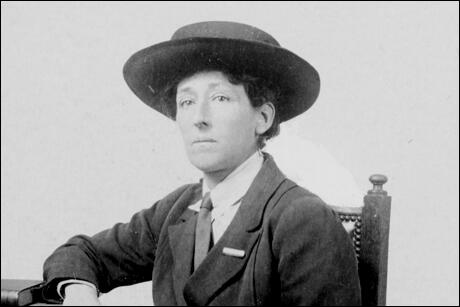
On this day in 1975 Jimmy Hoffa disappears and is never seen or heard from again. It is possible that Jimmy Hoffa was killed in 1975 to stop him from testifying in front of the House Select Committee on Assassinations. Fellow Mafia suspect in the Kennedy assassination, Sam Giancana, was also murdered at the same time Hoffa disappeared.
In 1989 Kenneth Walton, the head of the FBI's Detroit office, told The Detroit News he knew what happened to Hoffa. “I’m comfortable I know who did it, but it’s never going to be prosecuted because… we would have to divulge informants, confidential sources.”
Just before he died, Frank Sheeran, confessed to author Charles Brandt that he killed Jimmy Hoffa. According to Sheeran, Chuckie O'Brien drove Hoffa, Sheeran and another mobster Sal Briguglio to a house in Detroit. Hoffa and Sheeran went into the house and the other two men drove off. Sheeran says he shot Hoffa twice behind the right ear. After the murder, Sheeran says he left the house and was told Hoffa was cremated. The full story appears in Brandt's book I Heard You Paint Houses (2003).
